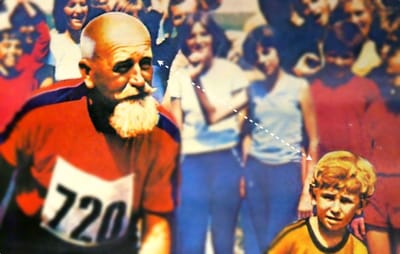
Photo by atbaker
What better way to learn about gifted students’ needs than by talking to gifted adults? Here’s a tour of some of the resources I found online.
A Stunner
This quote from a gifted adult looking back at elementary school is pretty stunning:
“I often thought that I was really stupid because I couldn’t understand why teachers taught things that I thought were obvious. I thought the other children were smarter because they saw complexities that I now know never existed. I had a hard time understanding other children. It never occurred to me that I felt different because I was ahead of them intellectually.” from Deborah Ruf:
If you’re not talking to gifted kids about what “gifted” means, who knows what they’re assuming.
Challenges
Paula Prober reports on the main challenges adults said they faced as gifted kids:
The main challenges include painful schooling experiences, high levels of sensitivity and intensity, existential depression/advanced empathy, perfectionism, multipotentiality, and difficulties with relationships. From Counseling Gifted Adults: A Case Study
Deborah Ruf picks up on a recurring theme of feeling out of place, notably when kids did not have their giftedness specifically explained to them:
…the theme of, “I thought something was wrong with me,” was prevalent among those who did not receive some form of explanation or confirmation of their intelligence. From Social Emotional Issues: What Gifted Adults Say About Their Childhoods
Deirdre Lovecky notes the ongoing conflict, even into adulthood, of reaching one’s full potential versus fitting in socially:
Unless they learn to value self and find support from others, these adults will experience identity crises whenever the conflict resurfaces.
From Can You Hear The Flowers Sing?
What We Can Do?
Felice Kaufman identifies the need to explicitly teach gifted students about more than academics:
Gifted students need to experience many facets of themselves, not just their academic abilities. Over-emphasis on intellectual prowess and competition for awards can have serious long term consequences. From: What Educators Can Learn From Gifted Adults
And Barbara Kerr extends this multifaceted approach to specifically helping students plan their careers, an idea that fits nicely with avoiding Impostor’s Syndrome:
Although parents and teachers may be concerned about academic planning for gifted and talented young people, they often assume that career planning will take care of itself. From
Career Planning For Gifted And Talented Youth
Finally, let’s make sure we’re not one of the people identified by Deborah Ruf:
People around them seemed to assume the gifted children knew how smart and capable they were. From Social Emotional Issues: What Gifted Adults Say About Their Childhoods
We shouldn’t assume that kids understand their own unique abilities and needs, no matter how high their test scores are.
